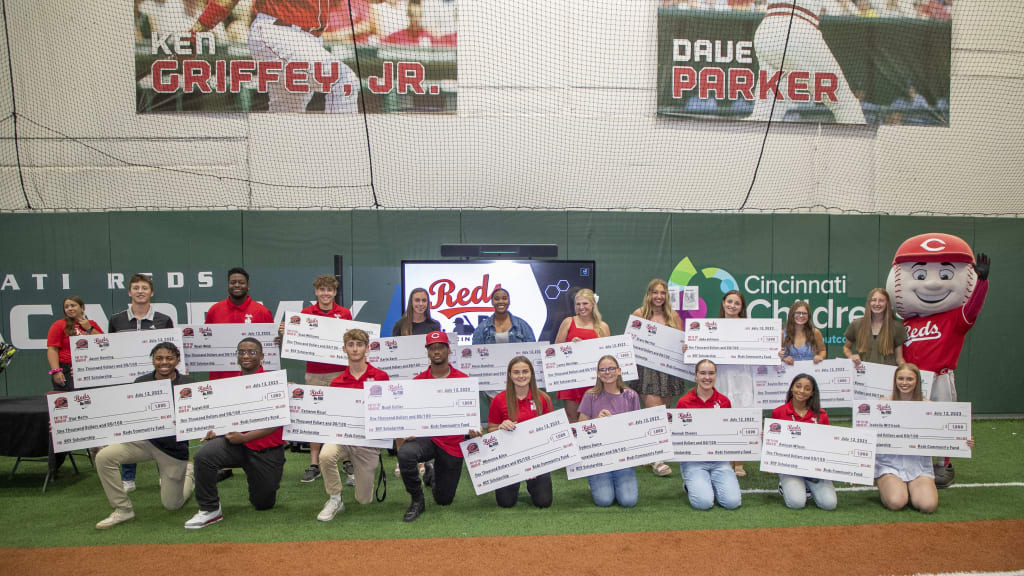
The Reds Community Fund (RCF) is focused on developing student-athletes into Major League Citizens, which is the objective of its newest program, RCF Scholars.
This immersive year-long curriculum combines individualized high-level athletic training with academic support and life skills development for each high school student-athlete in the Reds Nike RBI program, providing them with the tools to succeed both on and off the field. The RCF partners with PNC, University of Cincinnati, Mount St. Joseph University, Cincinnati Youth Collaborative, Beech Acres, Healthy Visions and others to provide for a diverse and robust experience.
In 2018, the RCF introduced Home Base, a week-long camp for 50 high school baseball and softball players that combined athletic training with academy test preparation and life skills development. The Reds partnered with UC for this holistic initiative that ran through 2021. The program made a lasting impact on kids and families, but slowed during COVID and was remodeled to reach more student-athletes over a longer period of time.
RCF Outreach Events & Education Coordinator Sara Kohls started thinking about what could be done to expand and improve the program, and the result was RCF Scholars.
“I took over the education program and was trying to find a sustainable concept to help these kids on and off the field,” Kohls said. “We set up a meeting with UC Associate Dean Kathie Maynard, who has helped us craft our education vision over the years. She recognized that since ACT prep is no longer the priority it was just a few years ago, we identify another key program pillar. So we thought, what about leadership?”
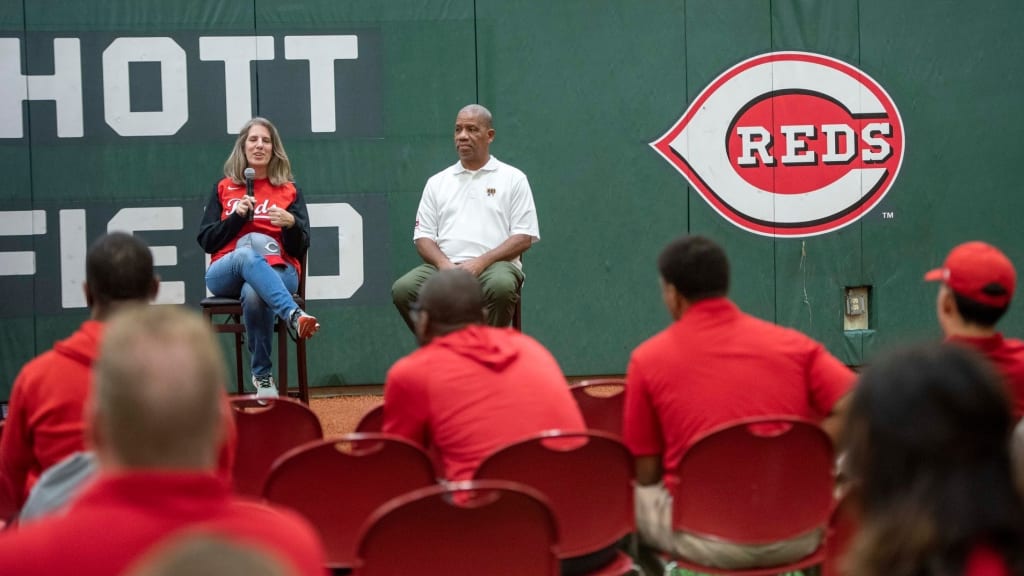
If a student-athlete earns a spot on a Reds Nike RBI team coming out of July tryouts, they are automatically enrolled in the program. That starts with signing a mandatory contract that lays out the requirements: first attending a welcome meeting that includes goal setting, then mental health seminars, three additional “elective” seminars and the high school season sendoff in February. In addition, the 150-plus players must complete at least 12 hours of community service and hold a minimum of a 2.0 GPA for the school year.
RCF Scholars is committed to a 100% graduation rate and the successful transition of high school seniors to college, military service, trade school opportunities or the workforce. The program focuses on the following five areas: Player Development, Leadership, Mentorship, College Awareness & Access and Workforce Awareness & Access.
The 30 seminars that are offered feature topics that touch upon those five pillars, such as college readiness, financial literacy, resume and essay writing, mental performance and social media, among many others.
After each seminar, the attendees take a survey to provide feedback, and the response from students and parents has been overwhelmingly positive.
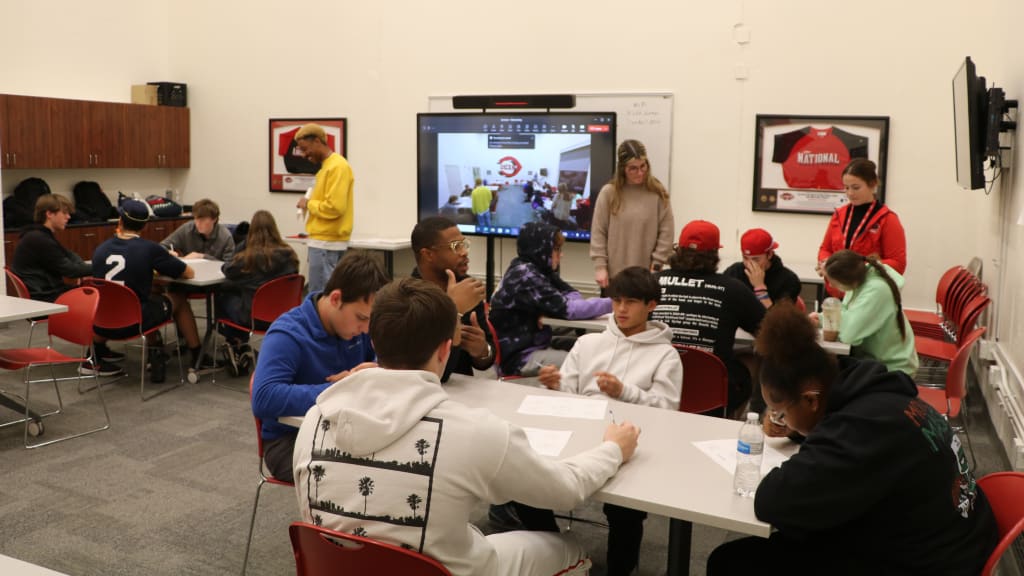
“I think a large part of what keeps them engaged is having different instructors -- a variety of people from different backgrounds so they aren’t listening to the same person each time,” Kohls said. “And the instructors take different approaches. Some of them will ask questions at the beginning, some will have them get up and move around or engage with each other, and some will keep an open forum. So I think they enjoy the different instructors and their approaches.”
Kohls appreciates that the students have been very honest in the post-surveys. It allows her to make real-time changes, while also incorporating the feedback into long-term planning.
Last year, one parent asked about having a course centered around drugs and alcohol. Kohls added it into the curriculum, combining it with healthy habits, and it was one of the most impactful sessions to date. While it was slotted for one hour, the students wanted to stay and discuss the topic for another 30 minutes.
“It’s not as easy to change things on the fly because of how packed the schedule is, but it’s very beneficial to assess after it’s over and evaluate what we can change for next year,” Kohls said.
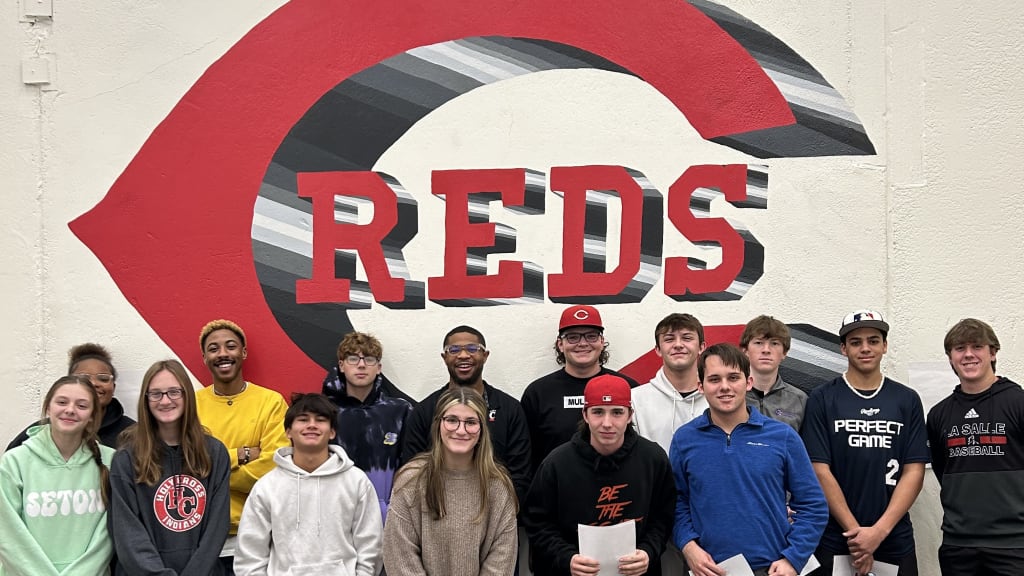
One of the sessions prior to the holidays was led by Dr. J.Z. Bennett, assistant professor at the School of Criminal Justice at UC. Dr. Bennett was instrumental in helping get the RCF Scholars program off the ground. He arrived at UC from Temple University, where he was part of a program that helped middle school students transition all the way through graduate school, so they were able to take elements from that model and apply it to what the RCF was looking to establish with Scholars.
In his session on networking, Bennett had the dozen attendees interacting and getting to know each other before talking about the importance of establishing a “Fab Five” network. In other words, identifying individuals who can help you in five categories: professional development, accountability for what matters, access to opportunities, role model/primary mentor and emotional support.
“Creating your mentoring network should be all about getting you to the place you want to be,” he said. “You want to be an MLB player? A professor? Identify the people and resources you need to get there. Our family and friends might get us through high school and college, but you’re going to have to find others and put them in your network to help. Expand that network, then build and nurture those relationships.”
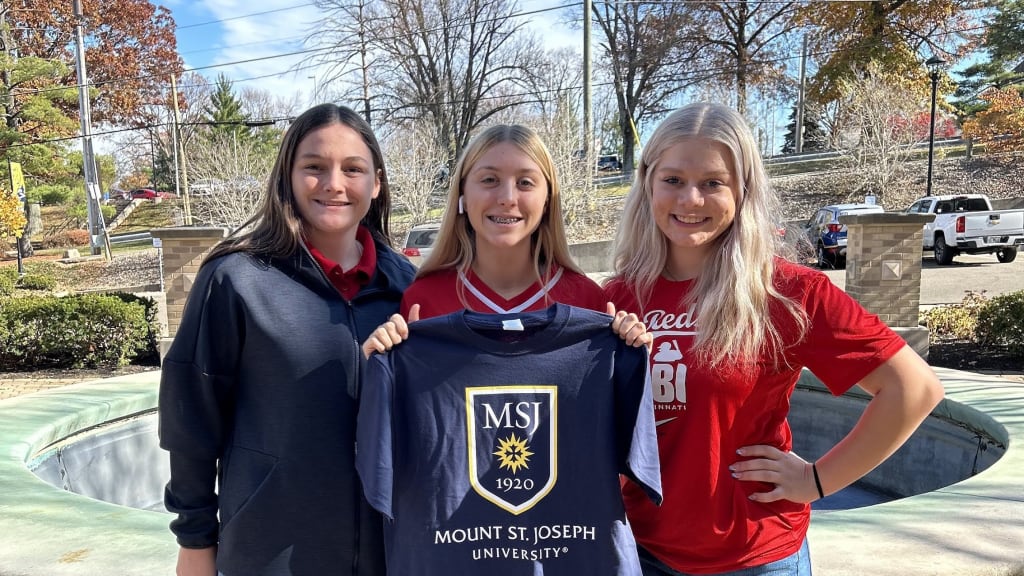
Dr. Bennett’s seminar is just one example of the many different lessons that the RBI student-athletes are learning. But no matter the specific topic of each session, they all relate to skills and information that can benefit the kids now as they prepare for the next steps in their lives.
“A lot of times, we tend to tell young people to wait until they’re older to start doing certain things,” Bennett said. “But opportunities will present themselves at any time, so it’s up to every individual to be prepared for them.”
This year, the money raised during RCF’s annual Giving Tuesday fundraiser after Thanksgiving directly benefited RCF Scholars. Over $17,000 was raised and will support the program in several ways. Most of the money raised will go directly to the student-athletes through scholarships to assist them with whatever step awaits them after high school graduation. A portion will also go toward funding trips to more colleges and universities, bringing in special guests and enhancing the current programming, including the welcome reception and senior sendoff.
“With building Major League Citizens through this program, we’re rounding out the whole person, not just focusing on them as a baseball or softball player,” Kohls said. “We want to make sure they have the resources to help them succeed once they leave here, and we hope they come back as alumni. We’ve had student-athletes that are now coaches and interns here. So that’s one of the other big goals is how to keep those kids involved, make lifelong fans and create that lifelong connection to the game.”

